Best Oath of the Crown Build in Baldur’s Gate 3

Quick Links
Baldur’s Gate 3’s Patch 8 added the Oath of the Crown Paladin subclass, an option which very much exemplifies the traditional “Lawful Good” trappings so strongly associated with the class in the game’s tabletop counterpart, even if you can still be evil with the subclass. This subclass grants a number of ways to buff allies and hinder enemies, with a thematic focus on being a loyal, honorable leader.

Related
Baldur’s Gate 3: 10 Tips And Tricks We Wish We Knew Sooner
If you’re new to the fantastically huge RPG that is Baldur’s Gate 3, here are some helpful beginner tips to guide you on your journey.
This guide will discuss the features of this subclass, give some warnings about what can cause you to become an Oathbreaker, and then finish with advice on how to build a decent Paladin that has sworn this oath.
Subclass Features
Paladins choose their subclass at Level 1. Their subclass will then grant additional benefits at Paladin Levels 3, 5, 7, and 9. When choosing a Paladin subclass, keep in mind the Paladin’s unique Oath mechanic; discussed in more detail later, failing to uphold your oath can have minor narrative and significant mechanical consequences.
Level 1
At Level 1, a Paladin’s subclass will bind them to their Oath, which they must uphold. Failing to do so will cause them to lose access to their Channel Oath abilities.
In return for following their oath, the Paladin also gains a Channel Oath Charge. They begin with one charge, which is restored on a Short Rest, and cannot normally get more charges through other means (except through the use of a specific and often missed item, mentioned later).
An Oath of the Crown Paladin also gains the Righteous Clarity Bonus Action, which they can perform by expending a Channel Oath Charge. This ability allows you to target yourself or an ally within 18m. For 10 turns, the target receives an additional bonus to attack rolls equal to their proficiency bonus (meaning they can benefit from their proficiency bonus twice if they were already proficient with the weapon or spell being used in the attack).
Level 3
Level 3 grants a Crown Paladin the Champion Challenge Bonus Action, which costs a Channel Oath Charge to use. This ability compels a target within 9m to attack you, causing them to receive Disadvantage on attacks against all other targets, if they fail a Wisdom Saving Throw against your Spell Save DC. This effect lasts 10 turns and ends early if the target moves more than 9m from the Paladin.
The Paladin is additionally granted the Turn the Tide Bonus Action. This ability, which consumes a Channel Oath Charge, heals all allies and neutral creatures within 9m by 1d6 plus your Paladin Level plus your Charisma modifier.
The Crown Paladin also gains access to the following spells as part of their oath, which are considered Always Prepared:
Level 5
The Crown Paladin gains access to the following spells as part of their oath, which are considered Always Prepared:
- Warding Bond
- Spiritual Weapon
Level 7
A Paladin of this oath gains the Divine Allegiance Reaction. When an ally within 1.5m takes damage, you may use your Reaction to heal them an amount of HP equal to twice your Paladin level. In return, you take twice your Paladin level in Radiant damage.
The Radiant damage dealt by Divine Allegiance can be reduced by normal means without reducing the healing the ability grants an ally.
Level 9
The Crown Paladin gains access to the following spells as part of their oath, which are considered Always Prepared:
- Spirit Guardians
- Crusader’s Mantle
Following Your Oath
The Crown Paladin has three tenets to their oath which they must follow:
- Law. Uphold civilisation and order.
- Loyalty. Your word is your bond; without loyalty, oaths and laws are meaningless.
- Responsibility. Deal with the consequences of your actions, and fulfill your duties and obligations.
Withers will not allow a character to respec while their oath is broken, including if you decide to swap to the Oathbreaker subclass. Other characters will still be able to respec as normal.
These tenets aren’t just for roleplaying; breaking your Paladin oath will cause a character called the Oathbreaker Knight to appear and will temporarily lock you out of some of your abilities (and also allow you to switch your subclass to that of Oathbreaker). To restore your character’s abilities, you will need to pay the knight as penance. Restoration initially costs 1000 gold but will increase the second and third time you break your oath, eventually requiring 10000 gold to be restored. Additionally, be careful of agitating the Oathbreaker Knight, as it’s possible to permanently lock yourself out of restoring your oath.

Related
Baldur’s Gate 3 Developer Opens New Studio
The Game of the Year winning developer expands.
As a general rule, maintaining your oath will require that you keep your promises and uphold the law. If you agree to do something and don’t, expect that to qualify as oathbreaking. Additionally, evading arrest for crimes (morally justified or not) will also typically qualify as oathbreaking. If something feels willfully cruel or dishonest, there is a good chance it will also qualify as breaking your oath, although that won’t be guaranteed in every case.
Building a Strong Crown Paladin
Paladins are powerful melee fighters, capable of using all weapons and armor (including shields). Their Smites allow them to deal heavy damage, while the Oath of the Crown allows for a massive, long-lasting accuracy buff through Righteous Clarity.
An important part of designing a Paladin build should be determining how you want to spend your Channel Oath Charge. Turn the Tide is a decent healing ability if you need to heal multiple targets at once (especially as a bonus action), but Righteous Clarity’s ability to effectively double your proficiency bonus on attacks is huge, improved even further if you can get Advantage on your attacks. You don’t necessarily need to buff your Paladin either; using Righteous Clarity on a powerful Barbarian, Fighter, or even transformed Druid can also result in some major, consistent damage. You’ll usually want to be buffing a character with multiple attacks, although there are niche scenarios where that won’t be the case (like trying to ensure a Rogue can hit difficult Sneak Attacks).
In terms of gear, you should consider seeking out the Gloves of Heroism in Act I (found hidden in a chest on the Risen Road, within the cellar of the Toll House). These buff a wearer with Heroism when they expend a Channel Oath Charge. A major upgrade of note for any Paladin is the Armour of Devotion, available from Roah Moonglow in Act II.
This puts many Paladins (assuming they’re not evil and running with the Absolute) in a rather odd place in Act I; Roah Moonglow is clearly vile (she literally talks about trafficking people for profit) and will often be killed by the player in Act I when first encountered in the Shattered Sanctum. However, putting off her death and waiting to access her new wares when she relocates to Moonrise Towers allows you to buy the Armour of Devotion, a set of magical Full Plate that grants the wearer the ability to use an Action once per Long Rest to restore their Channel Oath Charge.
A Paladin should typically be a frontline fighter, with the major choice one needs to make being whether to build primarily towards damage or defense. Given their AC is likely to be decently high anyway (a variety of good heavy armor is available throughout the game, even if one doesn’t spare a slaver to get the Armour of Devotion), it is the subjective opinion of many players that prioritizing damage is generally the better idea. Early Feat choices that can build towards this include using Ability Improvement to boost your Strength towards 20 and also using Great Weapon Master to gain the ability to deal heavy damage with two-handed weapons at the cost of an accuracy penalty (which you can toggle off).
Strength can be temporarily adjusted with elixirs, so one should arguably prioritize Great Weapon Master, but boosting your Strength to 20 early remains a decent investment; relying too heavily on elixirs is expensive and will mean you can’t benefit from other decent elixirs at the same time.
A high Dexterity isn’t bad for a Paladin, but two-handed Strength weapons usually offer the highest damage potential to a character and the heavy armor most Paladins will want to wear means their AC is unlikely to benefit from a good Dexterity regardless. There are certainly ways to make Dexterity a Paladin’s main attribute for attack, but they’re niche enough that they’re beyond the scope of this article.

Baldur’s Gate 3
- Released
-
August 3, 2023
- ESRB
-
M for Mature: Blood and Gore, Partial Nudity, Sexual Content, Strong Language, Violence
- Engine
-
Divinity 4.0
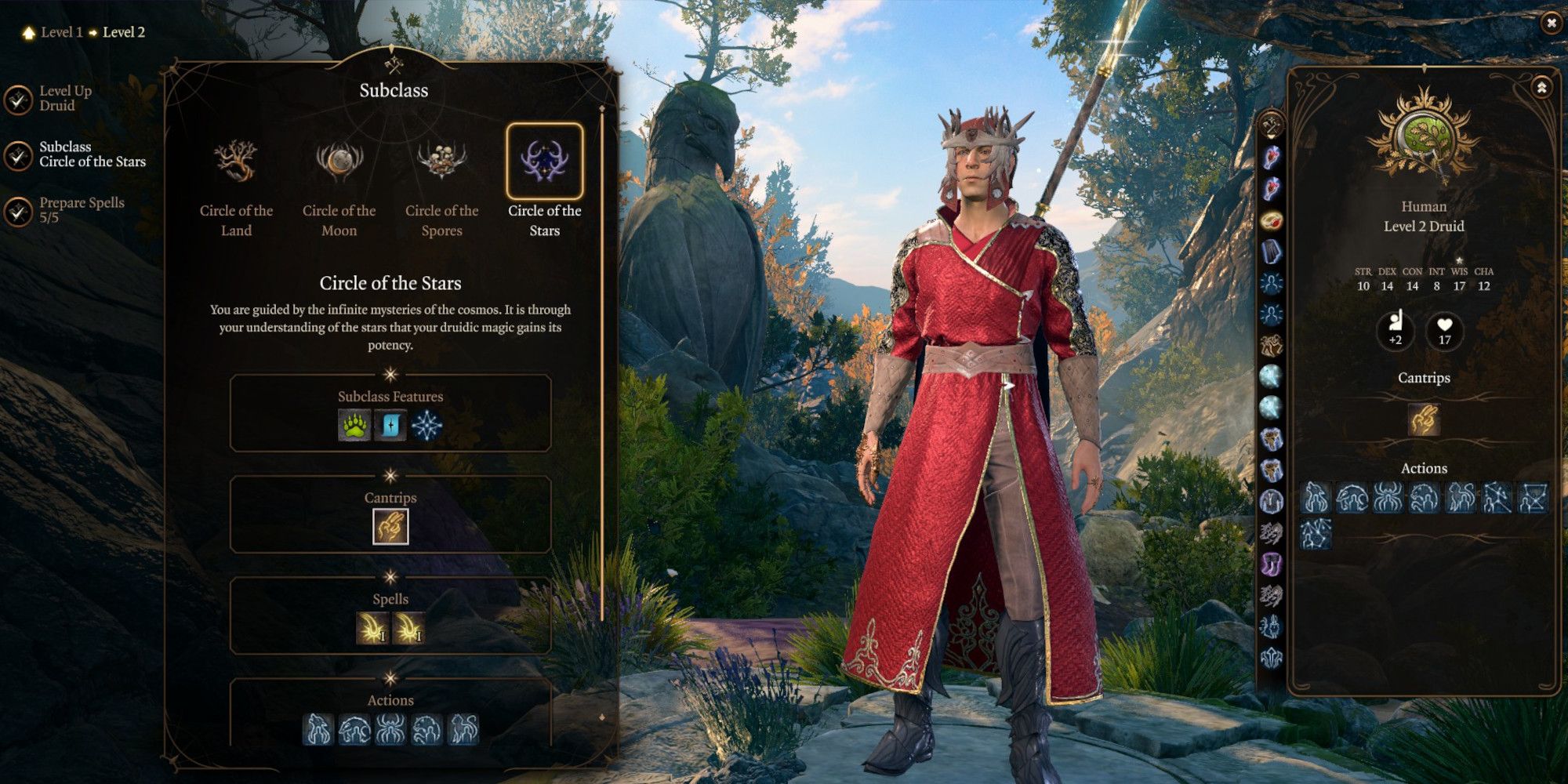
Next
Baldur’s Gate 3 Subclass Guide: Circle of the Stars
Learn how to pull magical forms from the very stars in Baldur’s Gate 3 with the Circle of the Stars Druid subclass.

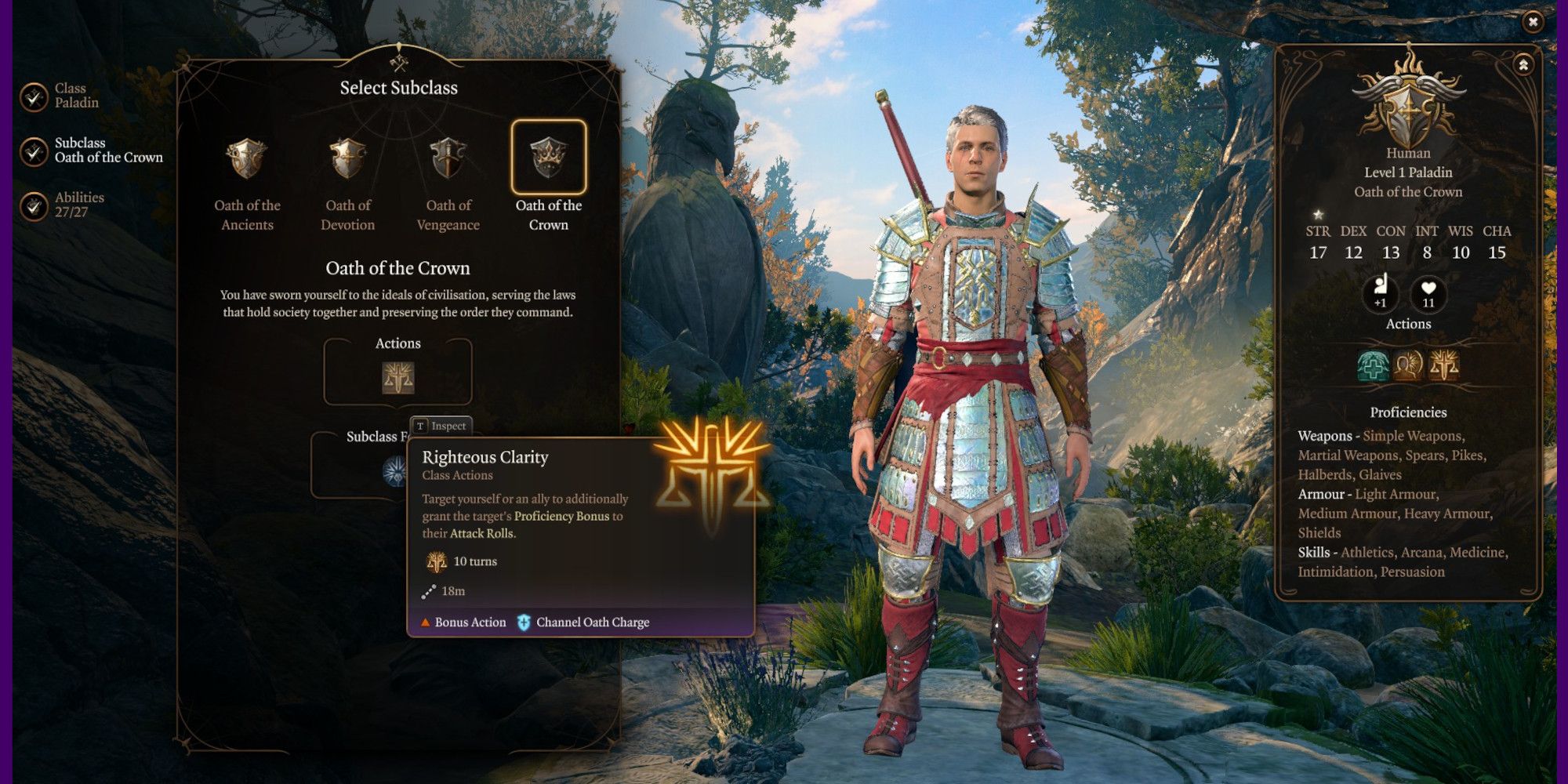

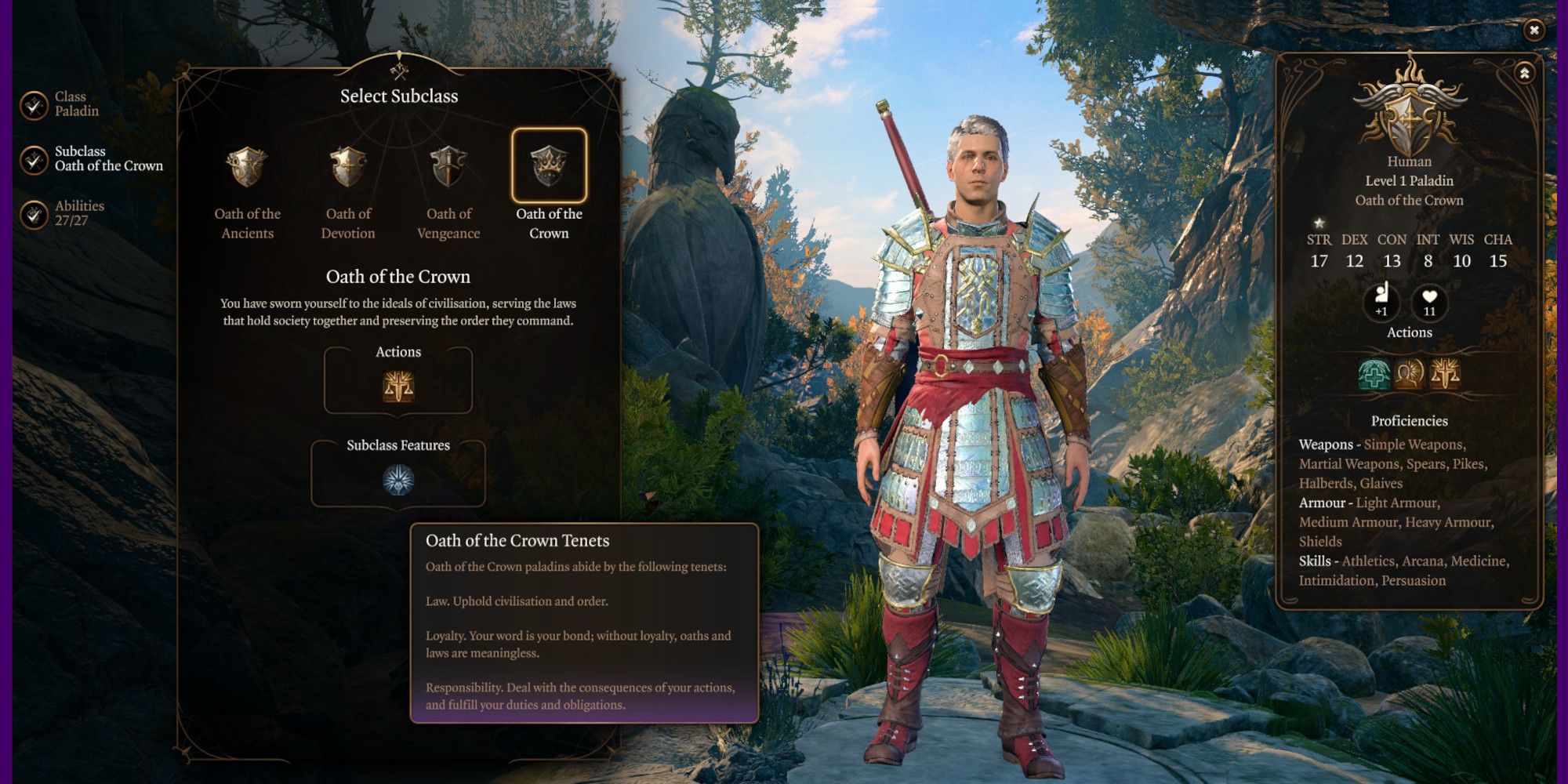
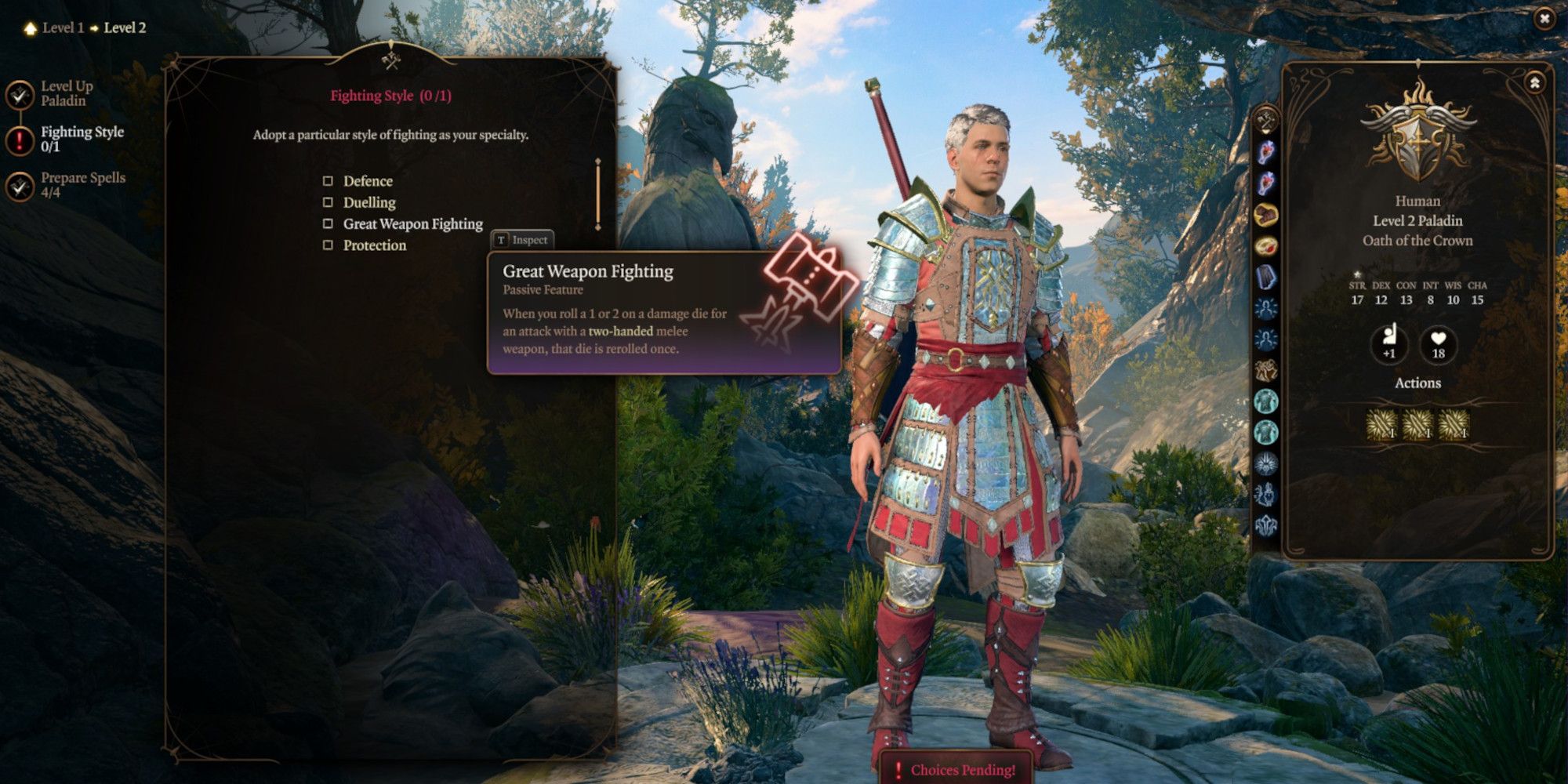
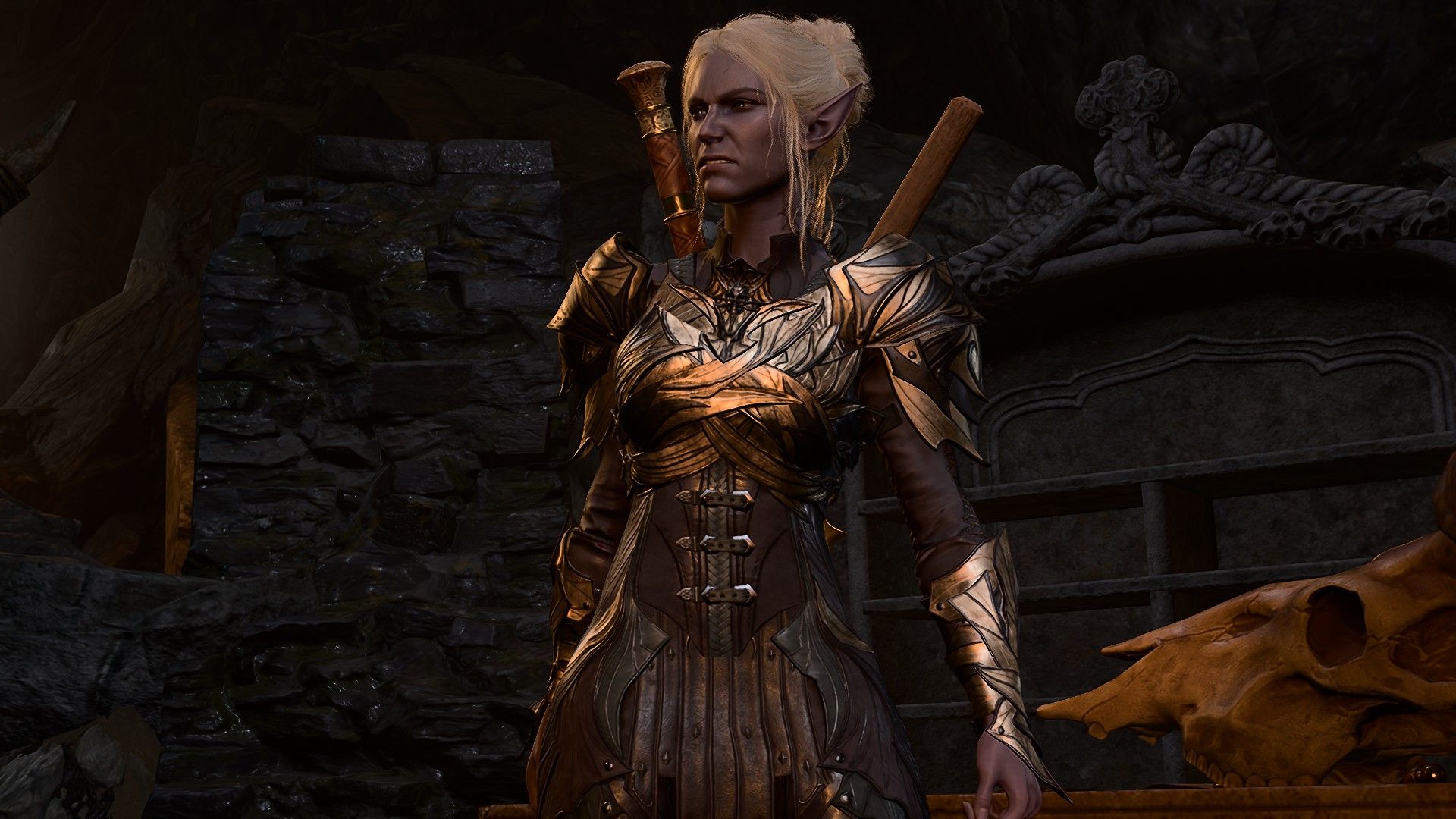






![How Much Would It Cost To Build A PC As Powerful As Xbox Series S? [2025 Edition] How Much Would It Cost To Build A PC As Powerful As Xbox Series S? [2025 Edition]](https://i3.wp.com/gamingbolt.com/wp-content/uploads/2020/09/xbox-series-s-2.jpg?w=1024&resize=1024,1024&ssl=1)



